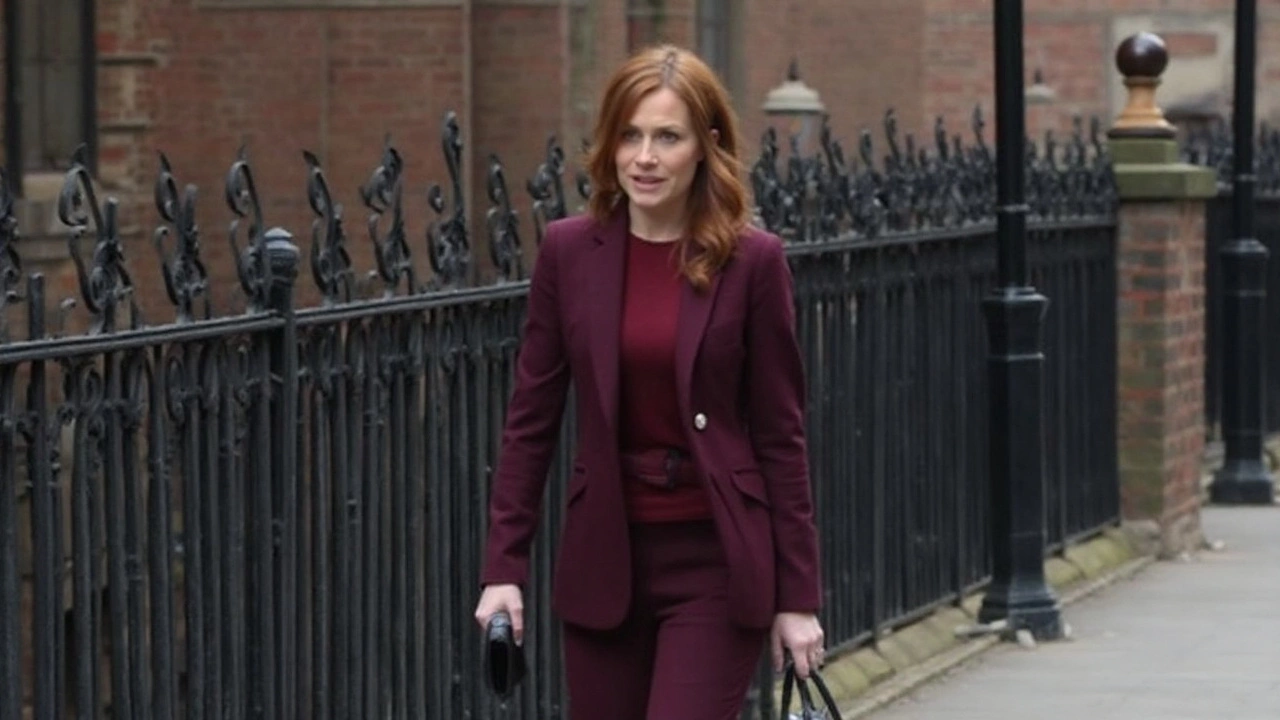Angela Rayner tax row splits Labour backbenchers as ethics probe proceeds

Sep, 7 2025
A rare on-air admission—and a party holding its breath
A serving Deputy Prime Minister admitting on live television that she underpaid tax would normally detonate the political week. Today, it didn’t—at least not immediately. Angela Rayner told Sky News she had not paid enough tax on her flat in Hove and has since reported the matter to the Prime Minister’s ethics adviser, Laurie Magnus. Keir Starmer moved fast to back her, saying he was proud to sit alongside his deputy. For now, she stays put while the ethics process runs.
Inside the Parliamentary Labour Party, the mood is more complicated. Rayner is one of the most popular figures in Starmer’s top team. She is seen as the bridge between government, the party machine and the trade unions. But popularity does not end questions. Backbenchers say they are waiting for facts, watching how the story lands with voters, and weighing what counts as an honest mistake versus a standard they have insisted on for others.
Rayner’s allies argue the context matters. They point to the turbulence around her divorce, caring responsibilities for her disabled son, and her claim that she followed legal advice that turned out to be wrong. One MP put it like this in private: she tried to do the right thing and got tangled in a technicality. Others are less moved. Another backbencher shrugged off the row as background noise when the government has bigger issues on its plate.
The formal process now sits with Magnus, the independent adviser on ministers’ interests. His job is not to decide how much tax is owed—that’s HMRC’s realm—but whether the ministerial code or wider standards were breached. That can include whether information provided publicly was complete, whether interests were registered properly, and whether any steps taken were timely and transparent. His reports usually set out the evidence, the timeline and whether the code has been breached, along with recommended action.
It matters because standards were a defining line for Labour in opposition. The party spent years hammering Conservative ministers over perceived lapses. Backbenchers know voters remember that. If they now appear to operate a gentler rulebook at home, the charge of double standards writes itself. Some MPs are already drawing comparisons with ministers who stepped down earlier in the term, citing cases like Tulip Siddiq and Louise Haigh as examples of colleagues who decided their own controversies had become distractions too far.

What’s at stake—and what investigators will ask
So what exactly is being examined? Publicly, Rayner says she underpaid tax linked to her Hove property. There are several ways tax issues around a flat can surface: capital gains tax if it was sold and not fully covered by main residence relief, rental income not fully declared if it was let out, or classification questions if a property shifted between use as a home and a source of income. Only the documents will show which applies here. What matters for standards is whether she corrected the position promptly and was transparent about it when required.
In practical terms, HMRC usually separates intent from outcome. If a taxpayer comes forward, pays what’s owed and cooperates, it often lowers any penalty or removes it entirely. If the underpayment was careless rather than deliberate, the sanction is different from an intentional breach. Those are tax judgments. The political judgment is harsher: does the story sound like a straight-up mistake, or does it suggest a minister played fast and loose with rules they expect others to follow?
Backbenchers are focusing on four angles: timing, advice, transparency, and tone. Did Rayner discover the problem recently or earlier? Did she rely in good faith on legal or tax advice? Were her interests and any relevant changes declared on time? And is she striking the right tone—serious, contrite, and precise—rather than defensive? Even MPs inclined to back her say the drip-drip of partial answers can be more damaging than the mistake itself.
- What tax obligation was underpaid and in which years?
- When did Rayner first become aware and what steps did she take?
- What advice did she receive and did she follow it in good faith?
- Were declarations and the ministerial register updated accurately and on time?
- Has HMRC confirmed the liability and any penalty, and has it been settled?
The outcomes range from mild to severe. Magnus could find no breach of the code and the matter might end with a published explanation and confirmation that HMRC has been paid. He could find a technical breach—say, a delayed update to the ministerial register—and recommend an apology. Or he could conclude the standards threshold was clearly crossed, pushing the Prime Minister to decide on a sanction. In the most serious scenario, that can mean a minister stepping down. Downing Street’s calculation will turn on public reaction as much as paperwork.
Rayner’s political capital is real. Union leaders rate her. Many activists see her as the plain‑spoken counterbalance to a cautious No 10. She has carried weighty briefs before and often fronts the party’s attack lines. That capital is also why this row carries risk. If a figure known for straight talk is dragged into a slow-burn standards saga, the gap between brand and headline widens. That kind of story is hard to shut down once it takes hold.
Strategists worry about the noise-to-signal ratio. The government wants airtime for housing, the NHS, and growth. Instead, broadcasters are booking segments about a property in Hove, legal advice, and tax bands. It is not that voters pore over the fine print. They tend to absorb the mood music: are these people focused on my bills and my street, or are they talking about themselves again? That’s why several Labour MPs say the speed of the ethics process matters almost as much as the eventual verdict.
There is also the fairness test. Rayner’s supporters argue she has lived the pressures many families face—divorce, caring responsibilities, money stress—and that honest mistakes happen. Critics reply that ordinary people do not get much leeway from HMRC, so ministers should be held to the same or higher standard. Both points can be true. Politics is about which one feels truer after a week of headlines.
Expect the opposition to keep pressing. Conservative MPs will talk about trust and the ministerial code. Smaller parties will push for full disclosure of documents and timelines. Inside Labour, the whips will be counting how many backbenchers go on the record, how many dodge interviews, and how many offer lukewarm lines like “let’s wait for the report.” If that becomes the dominant tune, the story stretches out.
The calendar adds pressure. Party conference season is on the horizon, and Rayner is usually central to union-facing events and the main stage. Colleagues want this resolved well before then. A rolling standards row risks overshadowing policy launches and feeding a media cycle that thrives on unresolved questions.
For now, the facts are simple: the Deputy Prime Minister says she underpaid tax on a property, has self-referred to the ethics adviser, and has the Prime Minister’s public backing. MPs are split between sympathy and discomfort. The system will grind through its checks. The political judgment will land faster, shaped by whether new details emerge, how Rayner handles scrutiny, and whether the story keeps drowning out the government’s day job.